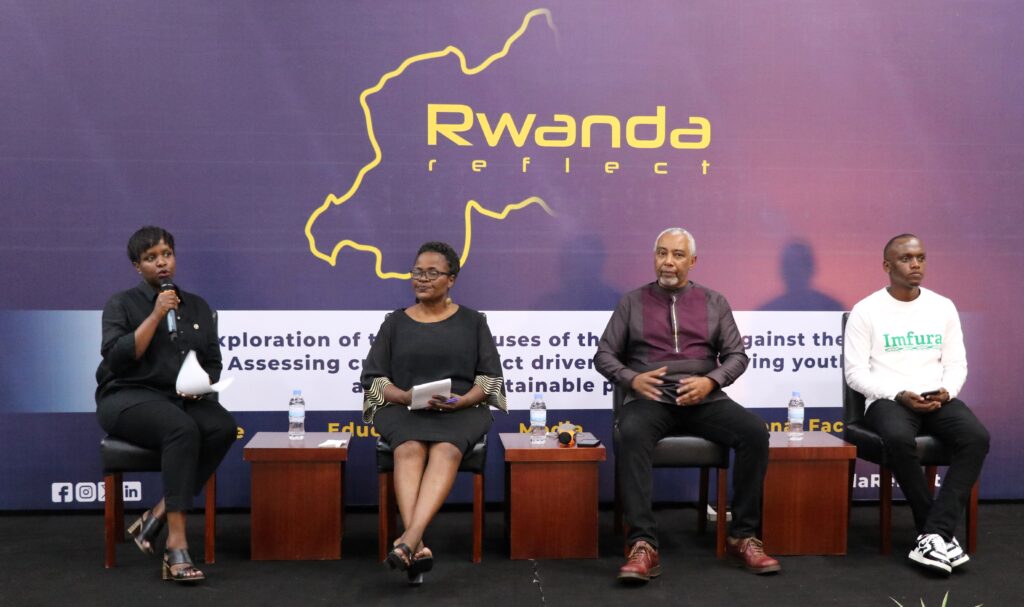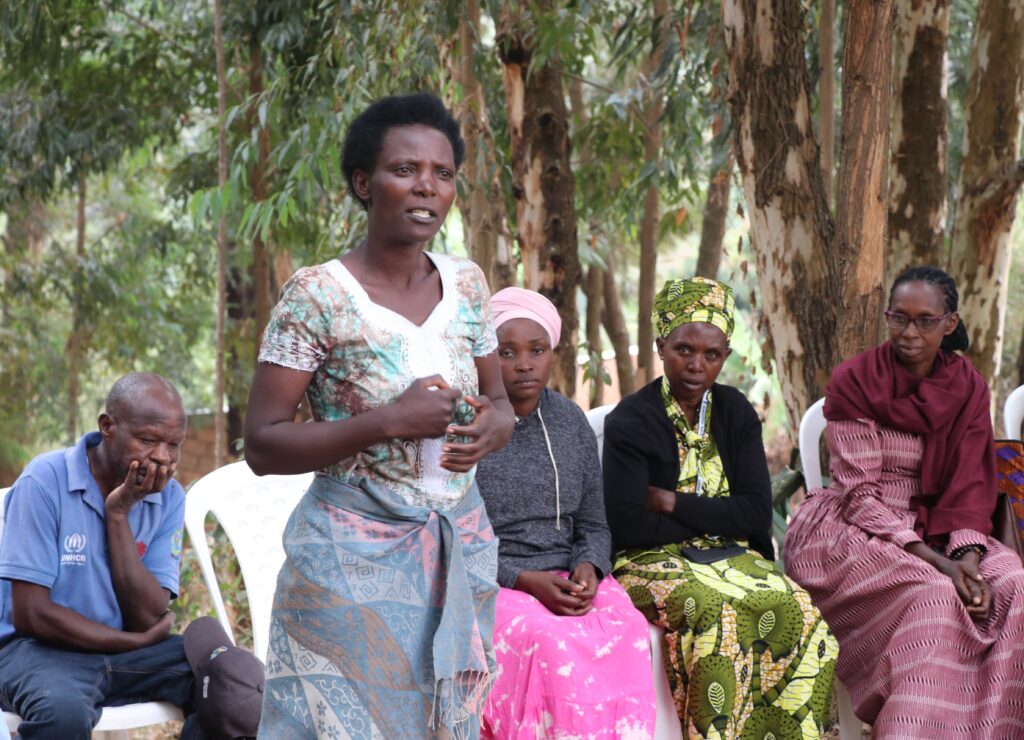Why reflection and remembrance of the 1994 Genocide against the Tutsi still matter
Every 7th of April, as Rwanda enters the period of commemoration for the 1994 genocide against the Tutsi, we think about the scars it left – not just on our bodies, hearts and minds, but also on our history. How does a nation heal from wounds so deep they altered the very fabric of society? During the 100 days of Kwibuka, as we remember the unimaginable loss of over a million lives lost, we reflect on what it means to move forward while honouring the truth of what happened – and ensuring these lessons are still relevant to younger generations.

Yet this moment of remembrance is often misunderstood, especially by those far removed from the events. We sometimes hear, “Why are Rwandans still not over it?” which reveals a deep disconnect between time and healing.
For peace to last, healing cannot be rushed
It has only been thirty-one years. That is within a single generation. Many of the people who witnessed or survived the genocide are still with us. They are rebuilding their lives and their country – while continuing to process trauma, to search for truth, and in many cases, to bury the remains of their loved ones, discovered even now. Healing, in such a context, cannot be rushed. Nor should it be measured by a timeline imposed from the outside.
From a peacebuilder’s perspective, remembrance is not just about the past. It is an essential pillar of reconciliation. It grounds our efforts to prevent the repetition of violence and helps to rebuild the social fabric torn apart by genocide.
It is an opportunity to reaffirm shared values – of human dignity, mutual respect, and accountability.
We’ve witnessed the power of this work firsthand in our projects. Our dialogue groups, trauma healing sessions and awareness campaigns supported people in processing their pain, seeking justice, asking for forgiveness and finding the strength to forgive. But, most importantly, they are gradually coming to terms with their pasts and committing to a better future for their children so that they don’t have to carry the trauma that occurred before they were born.

But this work, to be truly effective, takes time and continuous collective effort, which is becoming increasingly challenging.
The eroding promise of “Never Again”
As we reflect, we must also acknowledge a broader truth: the world has not lived up to its promise of “Never Again.” This phrase – emerged after the Holocaust and reinforced after the 1994 genocide against the Tutsi in Rwanda – was meant to be humanity’s commitment to prevent mass atrocities. Yet today, it rings hollow.
The international community’s inaction in 1994 remains one of the most painful failures of our global institutions. And it has not been an isolated one. We have seen civilians targeted in Syria, displaced in Myanmar, starved in Sudan, and caught in devastating cycles of violence in the Democratic Republic of Congo, the Middle East and elsewhere. These are not distant tragedies – they are shared failures of humanity.
Genocide ideology has not disappeared. It continues to manifest in denial, hate speech, and narratives that seek to undermine Rwanda’s journey toward unity. These ideologies are not confined to one country. Similar divisive patterns unfold across the region and around the world – patterns that, if left unchecked, can threaten peace and cohesion in fragile societies.
How do we effectively confront these?
Former UN Secretary-General Ban Ki-moon once said:
“We must never forget our collective failure to protect the people of Rwanda. We must learn the lessons of Rwanda and ensure they are never forgotten.”
This remains one of the central tasks of peacebuilders: to keep memory alive in service of prevention, not vengeance; to speak out not just when it is safe, but when silence is complicity.
Our work, therefore, is not only about resolving open conflict. It is about cultivating resilience against the seeds of hatred long before they take root.
History showed us that unhealed wounds can open again. This is why now, as ever before, we need to keep investing in efforts that help people find the root causes of their conflicts, work on shared solutions, and sustain the progress made so far.
When we fail to do so, the consequences extend far beyond the immediate victims. The erosion of international norms, the weakening of human rights protections, and the loss of trust in global systems affect us all. Peace is not simply the absence of war. It is the presence of justice, empathy, and shared action.
What’s next
What Rwanda teaches us is how easily fear can be fostered, how effectively divisions can be constructed and manipulated, and how quickly societal bonds can unravel. Through our work, we’ve seen what is possible when people choose reconciliation over revenge, when communities rebuild relationships even after the most profound rupture.
But this journey is not finished. Healing takes time, and remembrance plays a vital role in it. It is not a backward-looking exercise. It is a forward-looking shared commitment to ensure that the conditions which enabled genocide never arise again – here or anywhere – and we have the right tools and systems in place to prevent such atrocities.
Our consciousness must include memory, empathy, and the moral courage to act – not just when history calls but every day in the small decisions we make about whose stories we believe, whose suffering we acknowledge, and whose dignity we uphold.
In remembering the genocide against the Tutsi, we are not just honouring the past – we are protecting the future.



